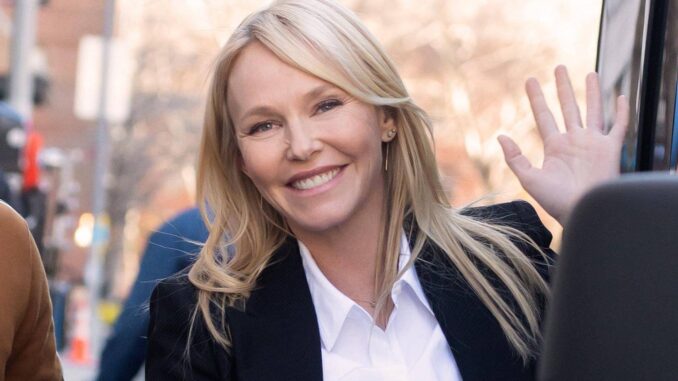
The fluorescent hum of the precinct, a scent of stale coffee and desperation clinging to the air, has always been more than just a workplace for the detectives of Special Victims Unit. It’s a crucible, a fortress, a flawed and fiercely loyal family. When Amanda Rollins, with her sharp mind, Southern tenacity, and haunted empathy, walked away two seasons ago, a palpable ache settled in the squad room. Her guest spots, brief and tantalizing, felt less like a return and more like a ghost revisiting a beloved, yet departed, life. But now, after years of circling the perimeter, Rollins is finally, unequivocally, home. And SVU, battered by the unending torrent of human depravity and the shifting sands of its own internal landscape, needs her now more than ever.
Rollins’ departure was, on the surface, a happy ending: marriage to ADA Sonny Carisi, a professorship in forensic psychology, a life of academic rigor rather than street-level trauma. It was a deserved respite for a character who had endured more than her share of personal demons and professional horrors. Yet, her occasional appearances felt like glimpses through a frosted window – a reminder of the incisive insight and raw emotional intelligence that was missing from the squad. She’d offer a crucial piece of psychological profiling, a flash of her old investigative fire, then vanish back into the carefully constructed peace of her new life. For the audience, and implicitly for the characters left behind, it was a tease, a yearning for the full, vibrant presence that had once been a cornerstone of the team.
The current iteration of SVU, while still vital, often feels weighted by its own gravitas. Olivia Benson, the lone sentinel, carries the crushing burden of command with unwavering dedication, but often in isolation. Fin Tutuola remains the rock, but his role is largely observational, a dry wit offering grounded wisdom. The newer detectives, Velasco and Bruno, are still finding their footing, developing their unique contributions. What’s been lacking is a specific kind of empathetic anchor, a detective who can dive into the psychological labyrinth of victims and perpetrators with a blend of academic understanding and street-hardened intuition. This is precisely where Rollins excels.
Her forensic psychology degree isn’t just a piece of paper; it’s an evolution of her inherent ability to read people, to see beyond the surface of a crime. She understands trauma not just as a wound, but as a complex psychological landscape. Where others might see only a perpetrator’s monstrousness, Rollins, armed with her knowledge and her own checkered past, might seek to understand the pathology, not to excuse, but to illuminate, offering crucial leverage in an investigation. She can connect with victims who are manipulative or evasive, not by judging them, but by meeting them in the murky space of their own trauma, coaxing out truths that others miss. Her grit, her willingness to bend rules for the sake of justice, her Southern tenacity, all of it is now bolstered by a deeper, more refined understanding of the human mind.
More than her skills, Rollins’ return completes a crucial emotional circuit within the squad. She is not just a colleague; she is Olivia’s confidante, a younger sister figure who matured into a peer. Olivia, who has lost so many trusted allies over the years, needs someone who understands the unique pressures of the job without needing extensive explanation. Rollins can offer a reality check, a sympathetic ear, a knowing glance across the squad room that says, “I get it.” Her presence also bridges the gap between the original guard and the newer recruits, offering a familiar, reliable face that embodies both the legacy and the evolving nature of the unit. With Carisi, her husband, still serving as the ADA, the Rollins-Carisi dynamic provides a rare and comforting stability in a show often defined by chaos. Their partnership, both personal and professional, grounds the team and offers a glimpse of enduring hope amidst the darkness.
Rollins’ return to SVU isn’t merely a nostalgic indulgence; it’s a vital recalibration for a show navigating its 25th season. It injects a renewed energy, a specific and much-needed psychological depth, and a crucial emotional anchor for its beloved Captain. The precinct, for all its horrors, is where Rollins truly belongs. It’s where her unique blend of intelligence, empathy, and resilience shines brightest, where her past scars have been forged into an invaluable tool for justice. With Rollins back in the fold, the squad room feels a little brighter, the cases a little less overwhelming, and the heart of SVU beats strong once more, ready to face the darkness, together. She is home, and SVU is better for it.
